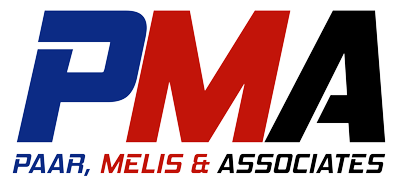In the latest “Business by the Numbers” episode, hosted by Hunt Demarest of Paar Melis & Associates, a compelling topic was tackled: Can auto repair shops succeed without adding a markup to parts? This idea, not widely adopted, prompts a fresh examination of traditional business models in the auto repair sector.
Labor Over Parts for Profits
Demarest examines the traditional reliance of auto repair shops on balancing profit between parts markup and labor charges. He challenges this norm by suggesting a model where shops could potentially maintain profitability solely through labor, eliminating parts markup. This shift could address concerns for shop owners who struggle to meet profit targets despite robust sales. The approach requires a significant overhaul of how shops calculate their service charges, leaning heavily on labor as the primary revenue source. By doing so, shops might counteract the loss of parts markup with higher labor rates, preserving overall profitability while adjusting their business models to a new paradigm.
Pricing from the Customer’s View
In today’s market, where customers can easily compare parts prices online, Demarest argues that a labor-only model could simplify the pricing structure for services, making it more transparent and straightforward for customers. This adjustment aims at enhancing customer trust by removing the often contentious issue of parts markup from the equation. However, it necessitates a careful recalibration of labor rates to ensure the financial sustainability of the shop. Demarest emphasizes the importance of transparent communication with customers about this pricing model, highlighting the value added by professional service and expertise in labor.
Legal and Financial Hurdles
The podcast also addresses the legal and financial challenges inherent in transitioning to a no-markup policy on parts. Demarest delves into the implications for sales tax revenue, which could be impacted by such a strategy, and the regulatory landscape that governs automotive repair businesses. This discussion underlines the necessity for shop owners to navigate these hurdles carefully, ensuring compliance while adapting to a new business model that could significantly alter their revenue structure and tax obligations.
Looking Ahead
Looking forward, Demarest engages with expert opinions and real-world examples to foster a broader conversation about the future of the auto repair industry. This discussion goes beyond mere profit margins, touching on the need for businesses to adapt to changing customer expectations and market conditions. By considering innovative practices like the no parts markup strategy, auto repair shops can explore new avenues for growth and sustainability. The podcast encourages shop owners to think creatively about their business models, considering not just the immediate financial implications but also the long-term prospects for success and stability in a rapidly evolving industry.
This shift could address concerns for shop owners who struggle to meet profit targets despite robust sales.
A Call to Reflect
This blog invites auto repair shop owners, mechanics, and enthusiasts to contemplate their current practices and the potential for embracing change. The idea of foregoing parts markup challenges the status quo but also opens up new avenues for aligning with contemporary customer expectations.
In Summary
Opting not to markup parts presents both risks and rewards for auto repair shops. As the industry evolves, so too must the strategies of those within it. This “Business by the Numbers” episode sheds light on an alternative future for auto repair businesses willing to rethink their approach to profitability.

